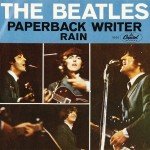How to be a (music) science writer
Hello, Dear Reader
I had an email today from a former student, Suzie. She said:
“I am emailing to ask your advice on getting into science writing as I would like to start communicating some of the ideas and research findings involved in the field of music psychology to a wider audience“.

Great! The more people writing about music and science, the better. Of course my first piece of advice is try a blog – I have found my blog to be a fun and rewarding activity these past 3.5 years (yes Dear Reader, it has been that long).
Writing a blog gives invaluable experience in writing for a wider audience. Blog writing has helped me to find my voice, a mode of expression that is more akin to the way I wanted to write about science compared to the highly stylized way that we must adopt when writing a formal science report or journal papers.
Don’t get me wrong, I have come to enjoy writing papers over the years. I like communicating with colleagues and sharing my ideas and findings. I am keen to contribute to the development of my field in any way possible. I am aware however, that virtually none of my papers will ever be read by the public. Even if they were keen to read the papers they will find that most of them are behind journal pay walls.
So I can completely understand Suzie’s desire to communicate more directly with the public about new findings in (music) science research. After all, it is the public who fund the majority of science research in UK universities so they deserve to know what they are getting for their money.
 So, my step one is to try a blog. Even if this is just a temporary step (don’t worry dear reader, I am not going anywhere) it will help you to practise your writing style and to develop a recognized voice in your field. If you are not going to invest in going down the road of traditional journalist training (i.e. a degree) then you would be wise to put in the effort to develop your skills and your name in this way. Your name in particular is something you need to get out there.
So, my step one is to try a blog. Even if this is just a temporary step (don’t worry dear reader, I am not going anywhere) it will help you to practise your writing style and to develop a recognized voice in your field. If you are not going to invest in going down the road of traditional journalist training (i.e. a degree) then you would be wise to put in the effort to develop your skills and your name in this way. Your name in particular is something you need to get out there.
I can also advocate taking time to work as an intern, in magazines or newspapers (online or print). Write a piece and send it to editors who manage publications that have a previous history of interest in music science. Make is SHORT – these people get lots of submissions and are hugely busy so will not read anything long winded. And make it punchy – give something to attract their eye.
You could also learn a huge amount by interning in a science communication environment. A couple of years ago I took two weeks of my holiday to work at the Science Media Centre in London. The SMC “provide support for scientists to engage with the media when their area hits the headlines, offering expertise of a team with over 10 years’ experience in science media relations”.
As an intern at the SMC I got first hand experience of how science is covered in the media.
I got to meet all the major science correspondents, to chat to them and see how they work (I could not speak to Alok Jha though – serious hero worship meets failure to speak moment). I saw the preparation and action of a press conferences, studied press releases being prepared, and witnessed how press relations experts trained scientists to best communicate their findings. The experience was brilliant.
 In the end, I believe you need experience. It takes time and effort to learn how the world of science communication works and to find your voice within its rapidly developing landscape. I am still early in my journey even after 3 years – as a full time researcher it is hard to find the time to devote to writing. Having said that I have spent all my weekends for the past year writing my first book – so if you love writing in this style then it is a pleasure that you will be drawn to again and again!
In the end, I believe you need experience. It takes time and effort to learn how the world of science communication works and to find your voice within its rapidly developing landscape. I am still early in my journey even after 3 years – as a full time researcher it is hard to find the time to devote to writing. Having said that I have spent all my weekends for the past year writing my first book – so if you love writing in this style then it is a pleasure that you will be drawn to again and again!
So my best advice is to get started. Now. Today. Find a (music) science topic or controversy that really interests you and write 500 words about it for the public. See what emerges and send it to some trusted friends/colleagues for feedback. Listen to their comments, without taking them personally. Evaluate how you feel honestly and seriously; are you enjoying this experience? Keep writing and then when you feel you have a collection of good pieces, send them out there to the right forums for consideration.
I wish all budding (music) science writers the very best. I look forward to reading your thoughts!
